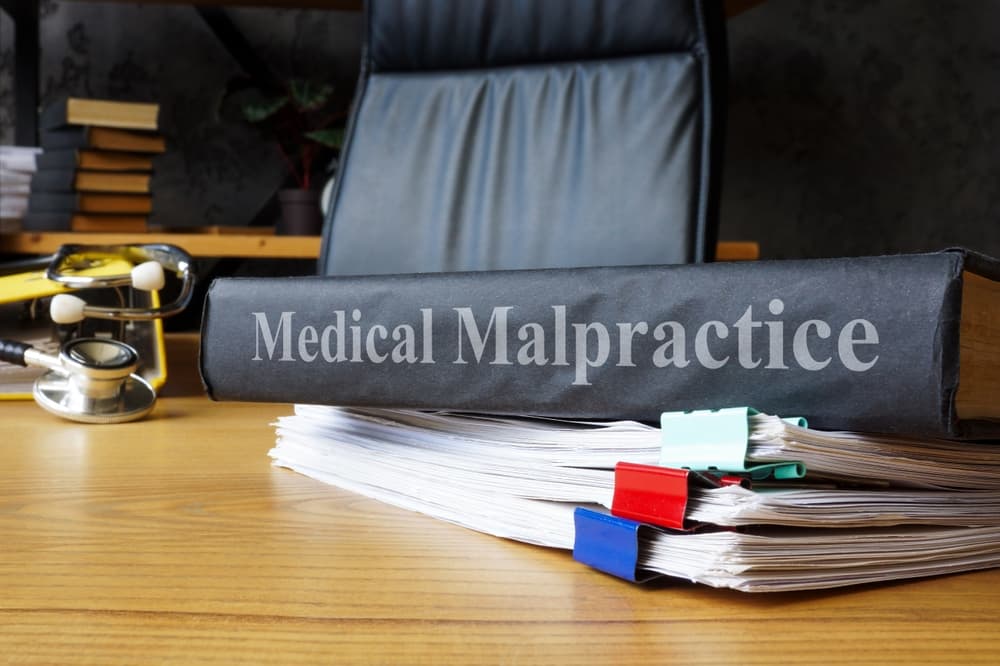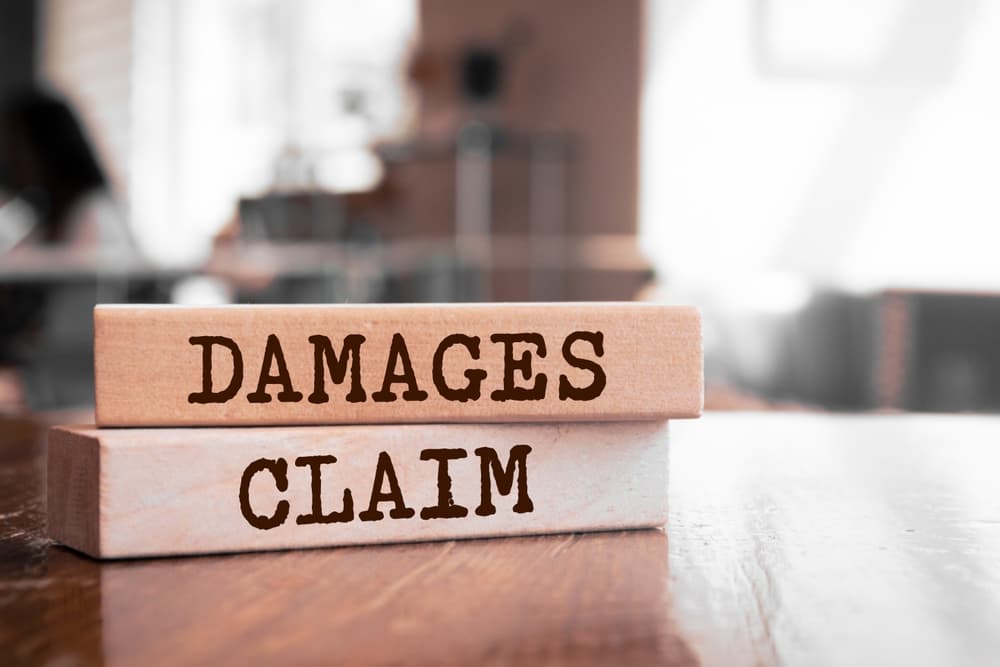When you seek medical care, you put your trust in healthcare professionals. You expect to get better, not worse. But what happens when that trust is broken, and a medical error leaves you with new health problems, lasting pain, or unexpected financial burdens?
The consequences of such mistakes can be devastating, altering the course of your life in an instant. If you or a loved one has suffered due to a healthcare provider's carelessness, you can pursue justice and seek compensation.
This comprehensive guide will walk you through the complex process of how to file a medical malpractice lawsuit in Pennsylvania, helping you understand each crucial step involved in holding negligent parties accountable and working towards a brighter future.
What is Medical Malpractice?

Medical malpractice happens when a healthcare professional acts carelessly. Their actions, or lack of action, fall below the accepted standard of care. This carelessness must directly cause you harm.
It is not just about a bad outcome from treatment. It is about a preventable mistake.
For example, a doctor might misdiagnose a serious condition. A surgeon might make an error during an operation.
A nurse might give you the wrong medication. These actions can lead to severe injuries or even death. The law provides a way to hold those responsible accountable for their actions.
To prove medical malpractice, you generally need to show:
- A healthcare professional owed you a duty of care.
- They breached that duty by acting carelessly.
- Their carelessness caused your injury.
- You suffered damages as a result.
Steps to Take Before Filing
Before you file a lawsuit, gather your thoughts and documents. This preparation is very important. It helps your future legal team build a strong case. Start by writing down everything you remember.
Include dates, names of providers, and details of your medical issues. Collect all your medical records. This includes doctor's notes, hospital charts, test results, and bills. These records show your treatment history and how your injury happened.
Do not worry if you do not have everything. Your legal team can help you get complete records later.
- Write down your memories of events.
- Collect all relevant medical documents.
- Keep a record of your expenses and lost wages.
The Legal Process Begins
Once you decide to move forward, your chosen legal team will start the formal process. They will investigate your claim thoroughly. This involves reviewing all your medical records and consulting with medical professionals.
These medical experts will help determine if malpractice occurred. Your legal team will then draft a complaint. This document officially starts the lawsuit. It outlines the facts of your case and what damages you seek.
The complaint is then filed with the court. The healthcare providers you are suing will receive a copy.
Discovery and Settlements
After filing, both sides exchange information. This phase is called "discovery." You will provide more documents and answer questions. The other side will do the same. This can involve written questions, called interrogatories. It can also involve sworn statements, called depositions.
During discovery, your legal team will work to uncover all facts. They will look for evidence to support your claim. Many medical malpractice cases settle before trial. A settlement means both sides agree to a resolution. This avoids the need for a lengthy court battle.
Going to Trial
If a settlement cannot be reached, your case may go to trial. A trial is a formal court proceeding. Both sides present their evidence to a judge or jury. Your legal team will present testimony from medical experts. These experts will explain how the healthcare provider's actions caused your harm.
The trial process can be complex and long. Your legal team will guide you through every step. They will argue your case and seek fair compensation for your injuries. This compensation can cover medical bills, lost wages, pain, and suffering.
What Damages Can You Recover?

If your medical malpractice case is successful, you may be able to recover various types of damages. These damages aim to compensate you for the harm you have suffered. They cover financial losses and non-financial hardships. The goal is to put you back in the position you were in before the medical error, as much as money can allow.
The compensation you can seek depends on the specifics of your case. It includes both economic and non-economic losses. Economic damages are those with a clear financial cost. Non-economic damages are harder to put a price on but are just as real.
Here are some types of damages you might recover:
- Medical Expenses: This covers past and future costs for treatment, therapy, medication, and any necessary medical equipment related to your injury.
- Lost Wages: This includes income you have already lost because you could not work due to your injury, as well as future earnings you may miss out on.
- Pain and Suffering: This compensates you for the physical pain and emotional distress caused by the medical error.
Navigating a medical malpractice lawsuit in Pennsylvania can be challenging. It requires a deep knowledge of both medicine and law. Having experienced legal support by your side can make a significant difference.
How Long Do You Have to File?
Time limits apply to filing a medical malpractice lawsuit in Pennsylvania. This is called the "statute of limitations." It sets a deadline for how long you have to bring your case to court. If you miss this deadline, you may lose your right to pursue a claim, no matter how strong your case is. Knowing this timeframe is very important.
The clock generally starts ticking from the date the medical error occurred. However, there are exceptions. Sometimes, you may not discover the injury caused by the medical error until much later.
This "discovery rule" can extend the deadline in certain situations. It is always best to act quickly to preserve your legal options.
General rule
In Pennsylvania, you typically have two years from the date of the injury or the date you reasonably should have discovered the injury. This two-year period is strict. Missing it means your case will likely be dismissed by the court.
Exceptions to the rule
There are specific circumstances that can change this deadline. For example, if the person harmed was a minor, the two-year period might not start until they reach the age of majority. Also, if a foreign object was left inside a patient's body, different rules might apply.
Why acting quickly matters
Even with potential exceptions, it is always best to consult with a legal professional as soon as possible. Memories fade, and evidence can become harder to gather over time. Acting fast helps your legal team collect all necessary information and build the strongest possible case for you.
Common Examples of Medical Negligence

Medical negligence can take many forms. It happens when a healthcare provider fails to meet the accepted standard of care. This failure directly leads to a patient's injury or worsening condition.
While every case is unique, some types of errors appear more often than others. These examples can help you understand if your experience might qualify.
It's important to remember that a bad outcome alone doesn't prove negligence.
There must be a direct link between the provider's careless act and your injury. Your legal team will investigate whether a specific error occurred that falls below what a reasonable medical professional would do in similar circumstances.
Here are some common situations that may involve medical negligence:
- Misdiagnosis or Delayed Diagnosis: A doctor fails to correctly identify a condition or delays doing so, leading to a worse prognosis or delayed treatment.
- Surgical Errors: Mistakes made during an operation, such as operating on the wrong body part, leaving instruments inside the patient, or causing nerve damage.
- Medication Errors: Prescribing the wrong drug, the wrong dose, or failing to check for harmful drug interactions.
- Birth Injuries: Carelessness during labor and delivery that harms the baby or the mother.
- Anesthesia Errors: Mistakes made by an anesthesiologist that cause injury, such as administering too much or too little anesthesia.
Recognizing these common scenarios can help you determine if you might have a claim. If you suspect you've been a victim of medical negligence, gathering your medical records and speaking with a legal professional promptly is a smart next step.
They can help you evaluate the specifics of your situation and advise you on the best way to move forward.
Seeking Legal Assistance
Navigating a medical malpractice lawsuit in Pennsylvania can be challenging. It requires a deep knowledge of both medicine and law. Having experienced legal support by your side can make a significant difference.
If you believe you have been harmed by medical carelessness, you should speak with a medical malpractice lawyer. Pribanic & Pribanic has a history of helping those affected by medical injuries. You can reach them to discuss your situation at (412) 281-8844.
Frequently Asked Questions
1. What does it cost to hire a medical malpractice lawyer?
Most medical malpractice lawyers work on a contingency fee basis. This means you do not pay any legal fees upfront. Your lawyer only gets paid if they win your case, either through a settlement or a court award. Their fees are then a percentage of the amount recovered. This way, you can pursue your claim without worrying about hourly legal costs.
2. How long does a medical malpractice lawsuit usually take?
The length of a medical malpractice lawsuit can vary greatly. Some cases settle relatively quickly, while others can take several years to resolve. The time frame depends on many factors, such as the complexity of the case, the amount of evidence involved, and whether the case goes to trial. Patience is often needed during this process.
3. Can I sue a hospital for medical malpractice?
Yes, you can sue a hospital for medical malpractice in certain situations. Hospitals can be held responsible for the careless actions of their employees, like nurses or technicians. They can also be held responsible for systemic failures, such as poor staffing, inadequate equipment, or failing to screen doctors who work there properly. It depends on the specific facts of how the harm occurred.
4. Will I have to go to court?
Not all medical malpractice cases go to court for a full trial. Many cases reach a settlement outside of court. A settlement means both sides agree on a resolution without a judge or jury deciding the outcome. However, if a fair settlement cannot be reached, preparing for and going to trial is a possibility. Your legal team will discuss this with you at every step.
5. What happens if the medical error caused a death?
If a medical error leads to a patient's death, surviving family members can file a wrongful death lawsuit. This type of claim seeks compensation for losses related to the death, such as funeral expenses, lost financial support, and emotional suffering. The goal is to provide financial relief to those left behind due to the healthcare provider's carelessness.